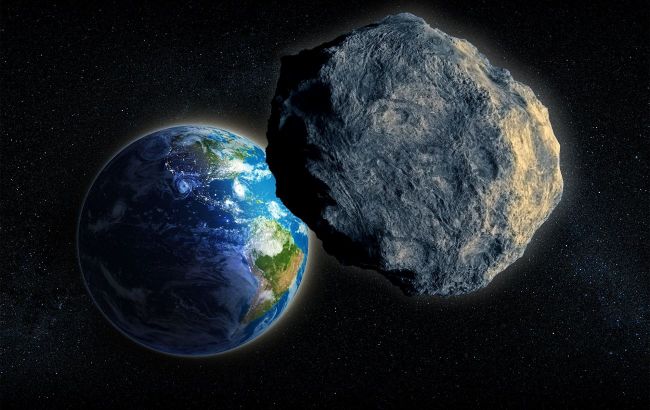Massive asteroid larger than Eiffel Tower approaches Earth
 A huge asteroid is flying towards Earth (photo: Getty Images)
A huge asteroid is flying towards Earth (photo: Getty Images)
Scientists are studying a huge asteroid that will again approach the Earth at a minimum distance. Research is now being conducted using space technology to determine whether this asteroid will be dangerous to humanity, according to Mirror.
Scientists say that a large asteroid, larger than the Eiffel Tower, will fly past the Earth on April 13, 2029. However, at the beginning of observations of this celestial body, researchers were sure that there would be a precedent for a devastating impact.
They are now studying this large space rock called 99942 Apophis, which is approaching our planet to improve Earth's defense against other asteroids.
Officials at the European Space Agency (ESA) have announced plans to fund preparatory work for the Rapid Apophis Mission for Security and Safety (RAMSES), which involves sending a spacecraft to obtain information from the asteroid about its size, shape, mass, and rotation in space.
Researchers want to learn about the composition of this asteroid, its internal structure, and its orbit. They are also interested in how the space rock can change when it passes within 32 thousand kilometers of the Earth, about a tenth of the distance to the Moon.
According to Holger Krag, head of ESA's Space Security Program Office, no asteroid will come this close in several thousand years.
“The flyby it does with Earth is absolutely unique. If the sky is clear, you should be able to see it with your naked eye,” he says.
Apophis will come closer to the Earth than geostationary satellites used for television broadcasting, navigation systems, and weather forecasting. This will be the moment when Apophis starts to interact with the Earth.
“It’s the gravity field of the Earth that will basically slightly reshape the asteroid, causing it to change its form," he says, adding Earth's gravitational pull could also cause landslides on the asteroid’s surface.
Ramses will act as a messenger, delivering information about the asteroid to help scientists better understand it and calculate the risks of Apophis-sized space rocks.
“Our goal in planetary defence is not to do science on asteroids, but it’s to characterise them in a way that one day we can deflect them when they become dangerous,” the scientists say.
According to Prof. Monica Grady of the Open University, most asteroids that fly past the Earth are mostly harmless because they are in fairly safe orbits. Apophis, however, is a space rock that crosses the Earth, and that's a different story.
“They come near the Earth, and there’s potential that one day one of them will hit the Earth and cause a major disaster. We believe this happened 65m years ago, when the dinosaurs were all wiped out. And if it’s a big asteroid and it hits us, it’ll be a catastrophe which will destroy humanity,” she says.
Apophis was reportedly discovered in 2004, and it was the focus of many scientists who initially believed it would collide with Earth as it orbited the Sun. NASA has debunked these theories, concluding that there will be no such impact when the space rock approaches Earth in 2020 and 2036.

